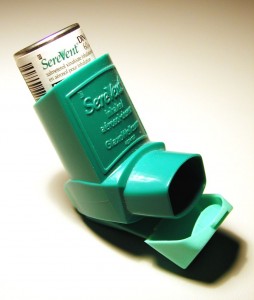Unfortunately COPD is not a curable disease. Instead, treatment aims to slow the progression of lung damage and improve quality of life for patients.
Lifestyle advice
All patients are advised to stop smoking (this has been shown to reduce deaths). In addition, patients may be offered a “pulmonary rehabilitation” course involving gradual exercise and education.
Patients are also advised to keep up to date with immunisations such as the yearly ‘flu jab’.
Medication and drugs
Various types of medication may be prescribed to patients with COPD:
Bronchodilators: These drugs relax the muscles which line the tubes of the lungs and make it easier for air to move in and out. They can help relieve symptoms of COPD such as wheezing and shortness of breath.
Steroids: Steroids ‘dampen down’ the inflammatory response and can help reduce inflammation in severe cases of COPD or during exacerbations.
Oxygen: Long term oxygen may be prescribed for patients whose oxygen levels fall too low, however this is not suitable for all patients and needs to be assessed on a case-by-case basis.
Antibiotics may also be required during exacerbations of COPD as these are often caused by infections.
Other treatments
Surgery may be an option in a very small number of cases where there is an area of ‘dead’ lung. This may improve symptoms however will not cure the disease.
